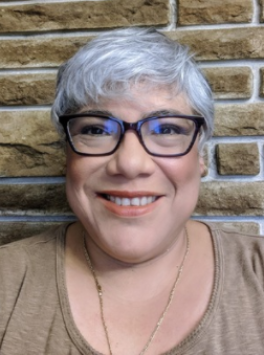Dr. Eugenia Romero is an associate professor in the field of Iberian Studies in the Department of Spanish and Portuguese. Dr. Romero’s research specifically focuses on Galician studies. “I chose this subject because I saw a lot of similarities between the Galician culture and my own Mexican culture. Although I grew up along the Mexico-United States border, I could relate to many aspects of the Galician identity.”

A central feature of Galician history is migration movements, which have occurred throughout centuries. “Immigration is a huge part of Galician identity. Within the Galician Archives [Arquivo da Emigración Galega or Archivo de la Emigración Gallega], there are collections of data, letters, and photographs that catalogue Galicians who have left the mainland in the hopes of finding wealth and opportunity,” Dr. Romero explains. Of all of the various ethnic groups within Spain, Galicians have emigrated the most. In fact, so many Galicians have moved to Buenos Aires, Argentina that it is considered the Fifth Province of Galicia. Those who live there even retain their Galician voting rights!
Research on Galician studies often focuses on the experience of those in the diaspora –particularly those in Latin American countries. In contrast, Dr. Romero’s research focuses on Galicians who have remained on the Iberian Peninsula. “Through my research, I was interested to discover that Galicians living on the mainland still see the immigration experience as the defining characteristic of who they are.” In addition to looking into first-hand accounts in the archives, Dr. Romero also analyzes how the topic of immigration and identiy is reflected in cultural productions. Her book, Contemporary Galician Culture in a Global Context: Movable Identities (2011), examines how Galician music, film, and literature reflects the immigration identity. “It is very easy to see this identity within Galician music, perhaps because there’s an immediacy to music that isn’t possible for other cultural productions. You can see how the influences of various cultures blend together, borrow from each other.”
Short films are also popular cultural productions in Galicia. The films typically focus on rural women who need help communicating with their loved ones who have left Galicia. Galician literature often examines a similar theme. Both mediums frequently express the sentiment of “saudade”- a term that expresses a feeling of loss and longing that is impossible to satisfy. “This word encompasses the way that Galicians tend to think of themselves – not completely gone, but not completely there; not completely immersed in their new home, but never really home again if they return to Galicia.”
Dr. Romero shares her expertise on immigration in Spain with OSU students through her course, “Human Rights in Contemporary Spain,” which is offered at both the graduate and undergraduate level. “Throughout the course, we examine the use of different languages, attitudes toward migration, Spain’s history of gender violence, economic crisis, and historical memory,” she explains. Dr. Romero hopes that the course provides a new cultural perspective for her students to explore, and that it will encourage students to reflect on their own culture’s shortcomings. “Sometimes it’s easier to be critical of yourself when it’s reflected through a different subject – it doesn’t feel quite as personal and allows you to be more objective."
In the future, Dr. Romero hopes to begin researching other diaspora groups within Galician migration – specifically those that immigrated to European countries. “There are several Galician populations in France and Belgium. I would love to learn about their perspectives and see how they compare to diaspora groups who settled in Latin America.” She would also like to study how the immigration identity affects second and third generation Galician immigrants.
